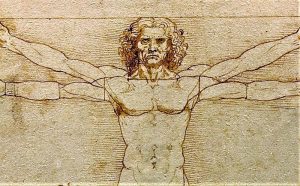Marxism
Within the area of philosophy, politics and economics, the figure of Marxist doctrine has had a great impact worldwide, generating in many nations political movements known as socialist or communist, which have formed the left blocks in different continents. This doctrine known as Marxism or scientific socialism was created by Karl Marx based on the economic study of capitalist society, having its greatest boom in the governments of Lenin and Stalin in the USSR.
What is Marxism?
Marxism or scientific socialism is a political, social and economic doctrine created by Karl Marx, which is strongly linked to socialism and communism. Marxism is based on three bases: the analysis of the past, through class struggle and historical materialism, the critique of the present through the analysis of capitalism and the need for a future project based on a communist society where political power is taken by the workers. This doctrine was first presented in the text entitled "Communist Manifesto" in 1848, in London. It is important to mention that Marxism and communism are not the same, since the former is a political doctrine and the other one is a type of government.
About Marxism
Marxism presents a doctrine that seeks social changes in the organization forms of peoples and the means of production that do not generate the exploitation of the working class with the final objective of ending with the social contradictions and the exploitation of man by man; creating a communist state where all are equal under the same benefits and with only one social class.
Characteristics of Marxism
Among the characteristics of Marxism we can mention the following:
- It sustains the theory that affirms that every historical event has been provoked by economic interests and not by spiritual values. This refers to historical materialism.
- The value of a merchandise must be determined by the amount of labor that was necessary for its production.
- The only way to generate wealth is through labor. The accumulation of capital wealth is generated by the exploitation of workers.
- Capitalist society is divided in two, the proletariat and the bourgeoisie.
- The class struggle under capitalism is between bourgeois and proletarians.
- Religion is a social creation that serves as an analgesic. The realization of humanity is not in heaven, but on earth.
- The ideal society has no social classes. The ruling class is eliminated in order to create an administrating class of the state that satisfies the needs of the people and eliminates class struggles by making a single ideal society.
- Factors of production must be centralized, prices must be regulated, and economic sectors must be in the hands of the state.
History of Marxism
Marxism has its origin in the middle of the 19th century, taking its name from Karl Marx who, together with Friedrich Engels, elaborated a theory inspired by utopian socialism that sought the transformation of society. This theory was also known as scientific socialism because it was more pragmatic than the socialism presented by previous philosophers.
The corpus of Marxist doctrine was first published in London in 1848 and was named the “Communist Manifesto“. It appeared on the eve of the revolutions that would take place that year in several European countries such as France, Germany, the Austrian Empire and Italy.
Progressively, Marx’s thoughts managed to penetrate the working class of the factories generating pressure in the industrial societies of Great Britain, Germany, France and Italy and later, to other countries of Europe. However, it is in Russia where Marx’s ideas serve as a great influence in the Bolshevik Revolution and later, they are taken as a reference in Lenin’s and Stalin’s governments to give greater rise to Marxist communist ideology.
Years later, communism occupied an important place in the political parties of many countries and this ideology was installed in Cuba after the Cuban Revolution in 1958, and in countries such as Romania, China, Laos, Vietnam, North Korea and some African countries that did not remain for long under this type of government.
Objectives of Marxism
The main objective of Marxism is for the State to have total control of the means of production in a centralized way in order to generate social welfare for the workers, preventing the bourgeoisie from taking over the means of production, the property and the inhabitants of the country.
Principles
The ideological bases of Marxism or Scientific Socialism are presented in the “Communist Manifesto” elaborated by Marx and Engels in 1848. These bring together the following principles:
- Historical materialism marks the development of history from economic factors.
- The class struggle in the capitalist stage takes place between the bourgeois class and the proletariat.
- The socialist society of the new era will emerge from the triumph of the proletarian class by abolishing private property, generating a single social class and placing the means of production and its profits in the hands of society.
Advantages and disadvantages
Among the advantages and disadvantages of Marxism we can mention the following:
Advantages
- There is no private ownership over the means of production.
- It seeks an equitable distribution of income.
- It does not generate unemployment.
- It seeks social welfare.
Disadvantages
The state can limit the creative development of workers.
- Companies tend to migrate from countries with Marxist states.
- Employees may be underpaid.
- The state generates its bureaucracy which produces a deficit.
- Political leaders become privileged groups.
- There is little power of initiative for innovation.
Consequences
Before talking about the consequences of Marxism, it is important to clarify that there is a difference between Marxism and communism. This is because Marxism is a philosophical and political current and communism is a system of government. In this sense, one could say that the former represents theory and the latter represents practice or application.
Marxism in its moment produced a reflection about the class struggle, capital and a project to improve social welfare that was relevant and valid for its time and for the future. For this reason, it can be affirmed that the Marxist thesis brought as a consequence a revision and analysis of the problems caused by capitalism in the nations, and how this could significantly affect people, especially the working class.
Another consequence of this doctrine is that it presented an analysis of the past, of the present and of what the future should be in order to create a single social class that represented humanity. The best known case is Russia in Europe, Cuba in Latin America and China in Asia.
Today, Marxists and Communists continue in the struggle against worker exploitation and the equitable distribution of goods. This reflective approach to social welfare is considered Marxism’s greatest contribution to humanity.
Unfortunately, the application of communism as a practical part of Marxism has generated in the countries where it has been applied, rulers who have remained in power for decades generating a governmental bourgeoisie (where only rulers have access to wealth and the people become poorer and poorer). In addition, in general, the governments that follow the Marxist current have suppressed the freedom of opinion (even killing those who have ideas contrary to their regime), deteriorating the quality of life of their inhabitants, the means of production and their economy to the point of having to reopen to the free market in order to be able to maintain themselves. These are the examples of governments such as Russia (before Perestroika), China (before opening to the free market), Cuba, Korea, among others.
Representatives
The most significant representatives of Marxism are Karl Marx and Friedrich Engels.
Karl Marx (1818-1883)
Marx was born in Trier, Western Prussia, into a family of Jewish origin that later converted to Protestantism. He studied law, history and philosophy. During his first work as a journalist in the “Rhenish Gazette”, he found himself immersed in different currents of the German philosophy of Hegel and Feuerbach, French utopian socialism and British political economy. His philosophical doctrine starts from man as a being who acts and not as a being who thinks. He criticizes religion and the State which, according to him, were imaginary achievements and substitutes divine consciousness for human consciousness.
Friedrich Engels (1820-1895)
Engels is the son of a German family that made a fortune thanks to the textile industry. He studied philosophy in Berlin and admired the ideas of Hegel and Feuerbach. It is in this place that he meets Karl Marx, whom he encounters again years later, during a trip to Paris. Engels realized that he and Marx have similar philosophical visions and decided to work together. Engels supports Marx financially and collaborates closely with him.
Outstanding works of Marxism
Marxism has generated much significant bibliography for philosophical, political and economic-social field; however the most representative works of Marxism are “Capital” and the “Communist Manifesto“.
The Capital
This work by Karl Marx is presented in three volumes, however, Marx could only see the first one published during his lifetime in Hamburg in 1867; the other two were published by Engels in 1885 and 1894. In this work, the critique of the present in relation to the capitalist system is proposed. Marx explains how bourgeois exploitation is a condition that depends on capitalism, where there is a worker who generates a profit superior to his salary, and it is the boss who keeps the rest of those profits generating wealth.
The Communist Manifesto
This work elaborated by Karl Marx and Friedrich Engels between 1847 and 1848 is a proclamation that expressed three essential ideas, which are:
- The political and intellectual history of a society is marked by its production and its socioeconomic formation (social classes);
- The struggle of social classes on the basis of private property and exploitation and
- The proletariat represents humanity and can only emancipate itself through communist revolution and the abolition of private property.
How to cite this article?
Briceño V., Gabriela. (2019). Marxism. Recovered on 23 February, 2024, de Euston96: https://www.euston96.com/en/marxism/










